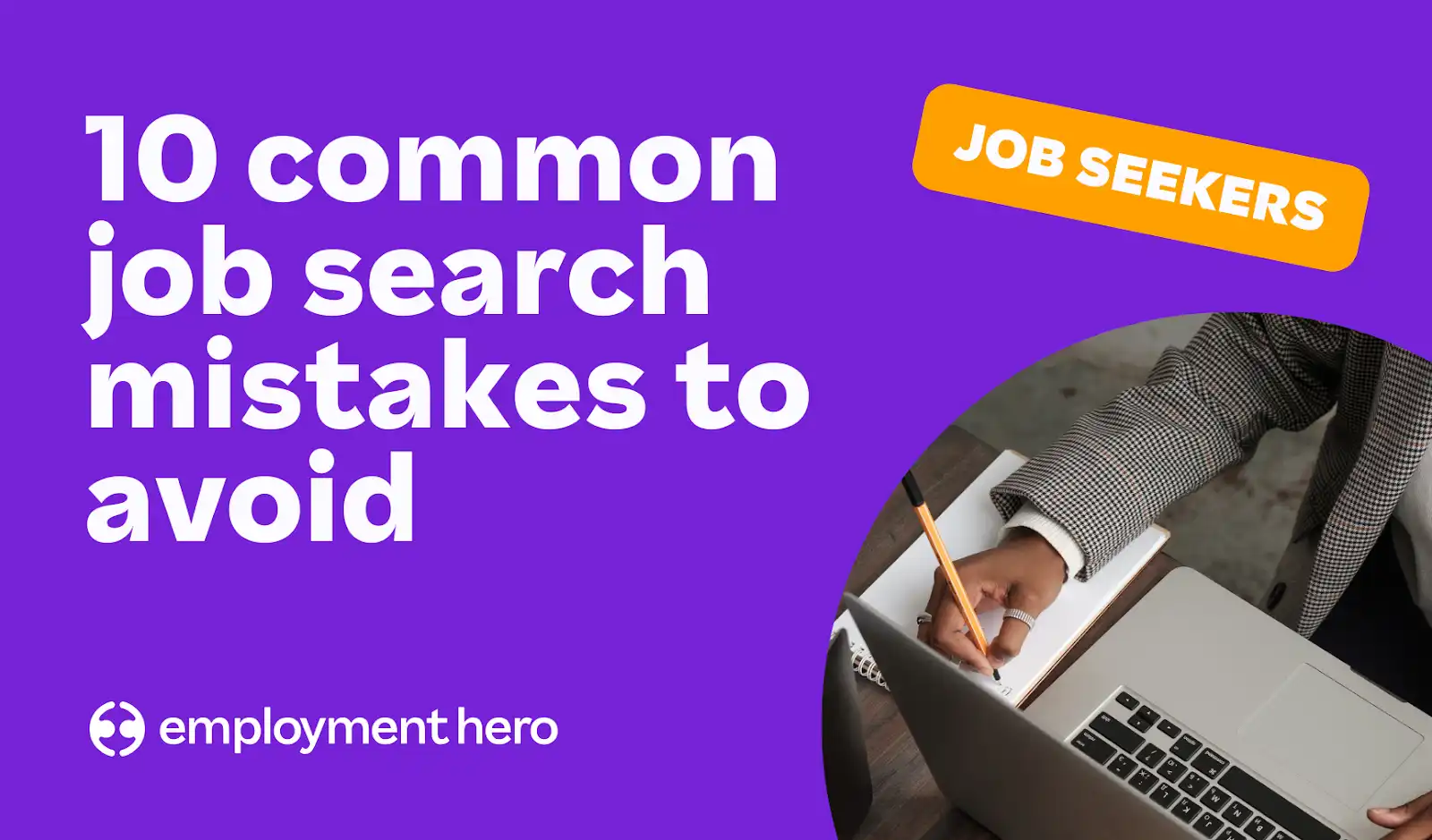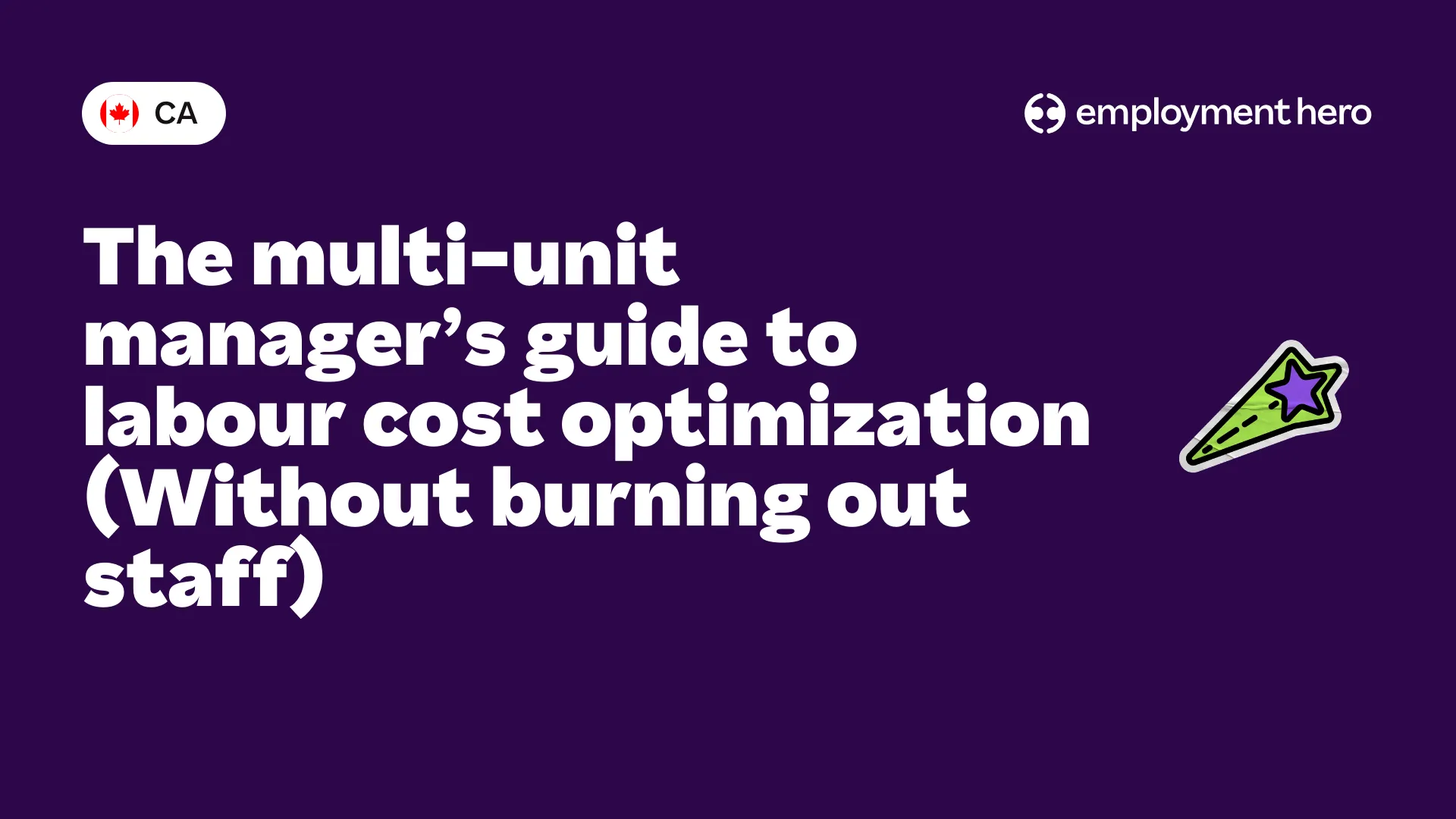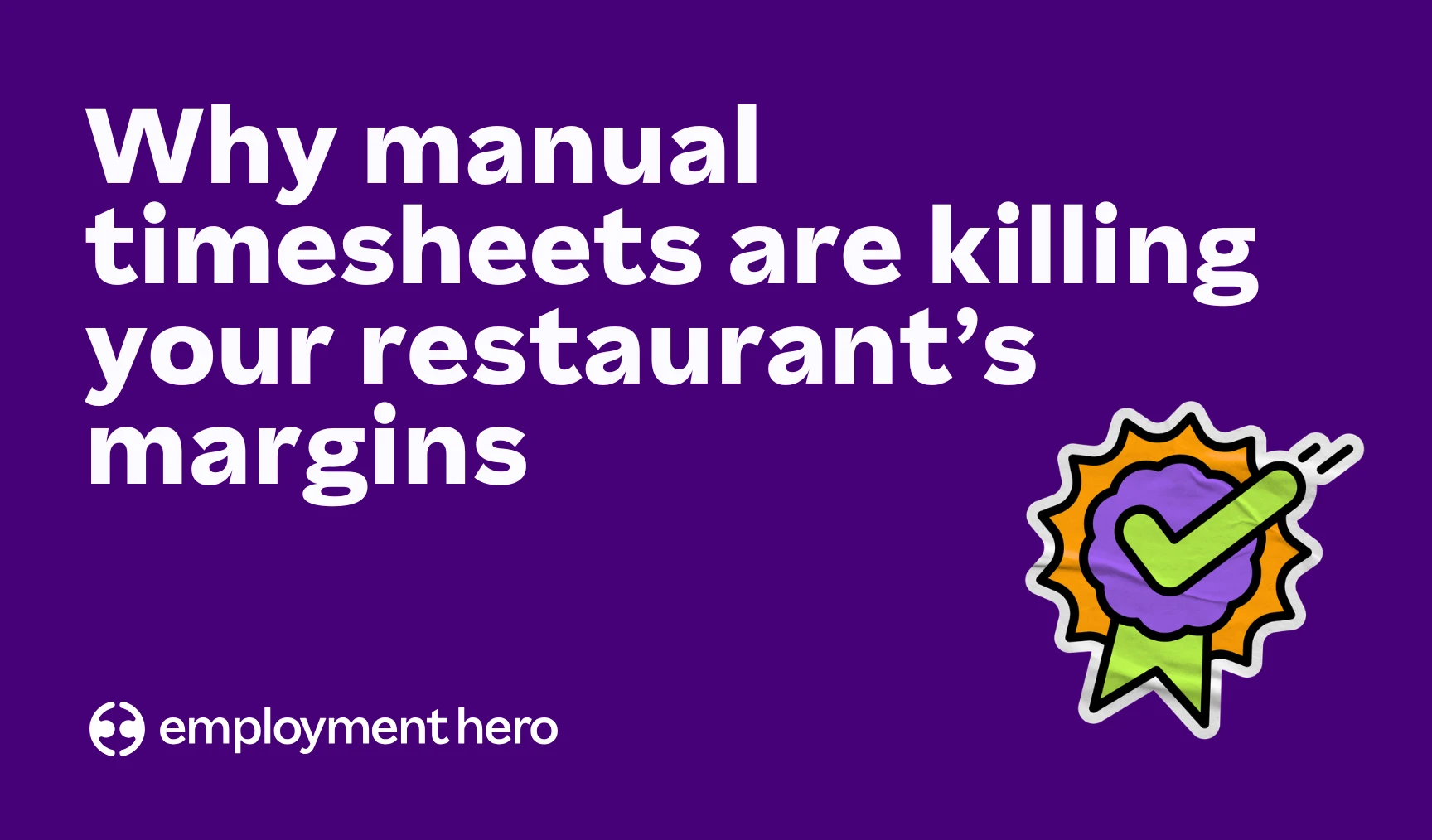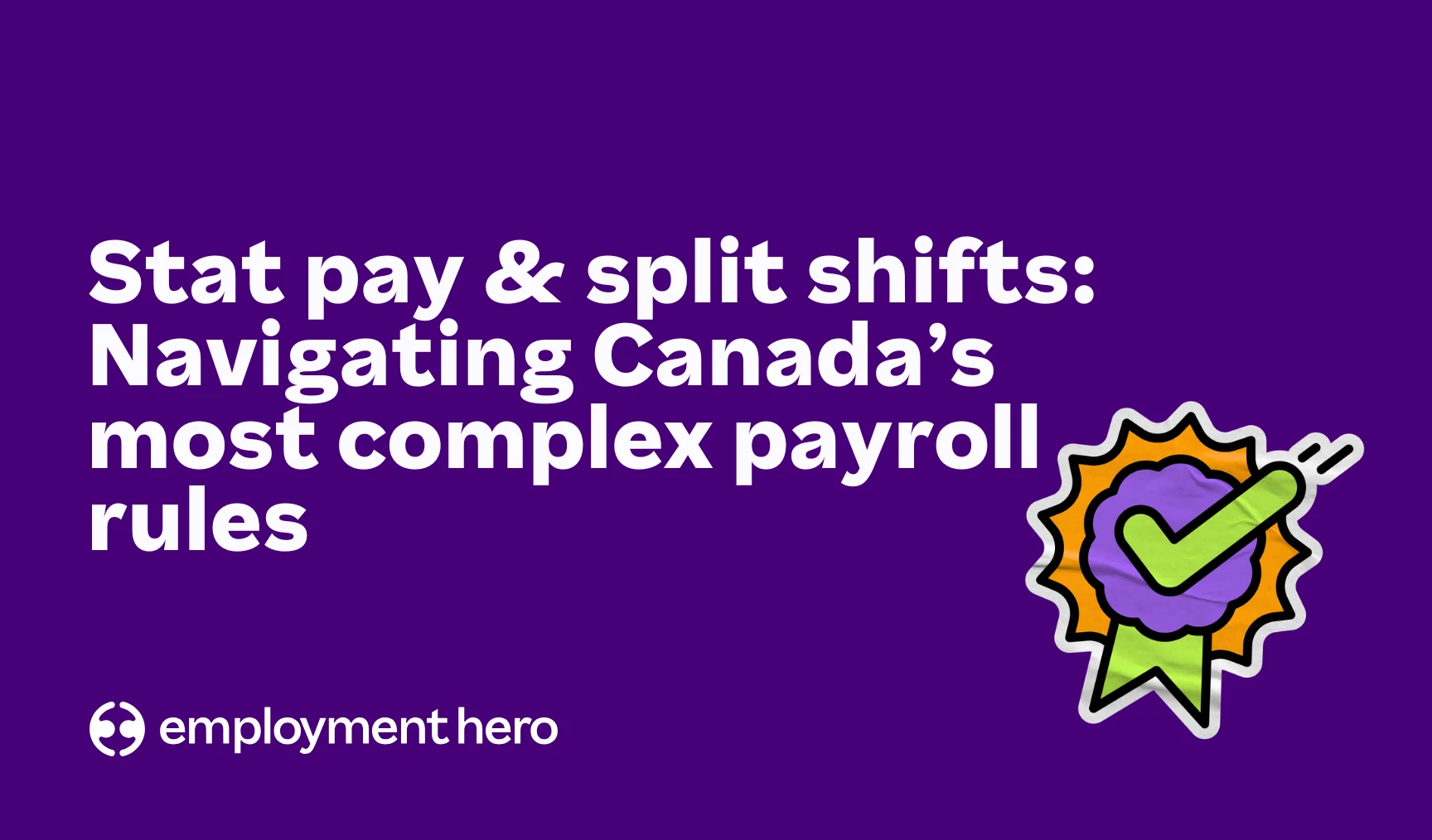10 common mistakes job seekers make in Canada

Contents
In Canada’s competitive job market, finding your next role requires more than just a good resume. Even experienced professionals can miss out on job opportunities due to simple, avoidable mistakes. From tailored resumes to interview techniques, every small detail counts.
Below, we outline 10 common job search mistakes job seekers in Canada make and, more importantly, how to avoid them. By addressing these issues, you’ll not only boost your chances of landing a role but also enjoy a smoother, less stressful process.
Why avoiding these mistakes matters
By sidestepping these common pitfalls, you’ll gain a significant advantage in a competitive market. Whether it’s crafting a standout resume, preparing for interviews or expanding your network, paying attention to the fine details can make or break your application.
Avoiding these mistakes can help you:
- Get noticed in a competitive market
- Feel more confident in interviews
- Show your professionalism and drive
- Find a role that fits your goals and lifestyle
Top 10 mistakes job seekers make (and what to do instead)
Mistake #1: Not having clear job goals
A lack of direction is one of the biggest barriers to success. Instead of applying broadly, focus on roles that match your skills, experience and career goals.
Actionable advice:
- Define your top priorities—whether it’s job title, industry or location.
- Create a checklist of must-haves (e.g., work-life balance, specific skills development).
Mistake #2: Ineffective job search strategy
Relying solely on job boards or sending out generic applications won’t yield great results.
Actionable advice:
- Diversify your job search. Include networking, direct applications and platforms like Employment Hero Jobs.
- Personalize each application to the role; employers can spot generic ones a mile away.
- Follow-up with recruiters or hiring managers to express interest.
Mistake #3: Using a generic resume
A resume that looks like it’s been sent to dozens of employers won’t stand out. Canadian employers appreciate tailored applications.
Actionable advice:
- Incorporate keywords from the job ad.
- Highlight relevant achievements and skills.
- Avoid U.S. resume norms like including photos or your date of birth, as Canadian employers typically prefer to avoid potential biases.
Mistake #4 Focusing solely on salary
Yes, salary is important, but narrowing your focus to pay alone can lead to missing out on roles with excellent benefits or team culture.
Actionable advice:
- Balance salary expectations with other factors like work-life balance and professional development opportunities.
- During interviews, ask about team dynamics, flexibility and additional perks.
Mistake #5: Ignoring the hidden job market
Not all jobs are posted publicly. Canada’s ‘hidden job market’ (jobs filled through referrals or direct hires) remains a valuable resource.
Actionable advice:
- Leverage your professional network.
- Attend industry events and local meetups.
- Keep your LinkedIn profile updated and active.
- Set up a profile on Employment Hero Jobs, so that employers can reach out directly with roles that match your skills and interests.
Mistake #6: Skipping company research before interviews
Going in unprepared can make it harder to connect with the interviewer and show genuine interest.
Actionable advice:
- Research company values, recent projects and their industry presence.
- Prepare questions about their team, culture and goals to show genuine interest.
Mistake #7: Not attending networking events
Networking is essential in Canada, where personal recommendations can open doors.
Actionable advice:
- Join local professional groups or attend industry-specific events.
- Use LinkedIn to connect with professionals in your field.
- Engage with communities such as Meetup or industry bodies.
Mistake #8: Not taking virtual interviews seriously
With remote work becoming more common, virtual interviews are just as critical as in-person ones.
Actionable advice:
- Dress professionally and ensure your space is clean and distraction-free.
- Test your technology ahead of time to avoid disruptions.
- Look at the camera to mimic eye contact. Speak clearly and remember to smile; it helps build rapport even through a screen.
Mistake #9: Neglecting your online presence
Canadian hiring managers often vet candidates on LinkedIn and other platforms. A poor online presence (or worse, an unprofessional one) can hurt your chances.
Actionable advice:
- Create a polished and updated LinkedIn profile that aligns with your resume.
- Share relevant articles, comment on industry trends and engage with professional content.
- Audit your social media to ensure there’s nothing that might leave a negative impression.
- Ask a friend to review your LinkedIn profile; a second opinion can catch things you might miss.
Mistake #10: Failing to follow-up
Not following up after an interview or application can give the impression that you’re uninterested. Sending a timely and polite follow-up can show initiative and interest.
Actionable advice:
- Send a polite email within 1-3 days after your interview, thanking the interviewer for their time.
- Reaffirm your interest in the position and ask if they need any more information.
Land your dream job with Employment Hero Jobs
Avoiding these common job seeker mistakes helps you stand out from the crowd, and Employment Hero Jobs can give you an even greater competitive edge. You get access to roles tailored to your profile, skipping the generic job board struggle.
Take action today
Set up your profile on Employment Hero Jobs and unlock access to hidden opportunities, AI-powered matching and the confidence that comes from a smarter job search.
Transform your job hunt into a job win; because every detail matters when it comes to your career.
Frequently asked questions about job application mistakes
In Canada, a well-crafted cover letter is highly important, often acting as your first impression. It allows you to elaborate on your resume, showcasing how your specific skills and experiences align with the job description and company culture. A compelling cover letter demonstrates your genuine interest and attention to detail, making you stand out from candidates who submit generic applications.
Generally, it’s best to state “References available upon request” rather than including them directly on your resume. This approach saves valuable space on your resume and ensures that you can provide references who are prepared to speak on your behalf when requested by a potential employer. Only provide references when specifically asked, and always inform your references beforehand that they may be contacted.
Addressing employment gaps on your resume requires a strategic approach. Instead of trying to hide them, frame them positively by focusing on what you gained during that time, whether it was skill development, volunteer work, travel for personal growth or family responsibilities. Use your cover letter to briefly explain the gap, emphasizing how the experiences during that period contributed to your personal or professional development, making you a more well-rounded candidate. If the gap was due to unavoidable circumstances, honesty and a confident explanation can often be more effective than silence.
It is generally recommended to send a thank-you email within 24-48 hours after an interview. This shows your continued interest and professionalism, and it allows you to reiterate key qualifications or add anything you might have forgotten to mention. A timely follow-up keeps you top-of-mind for the hiring manager and can significantly boost your chances of making a positive lasting impression.
Yes, it is generally acceptable to apply for multiple jobs at the same company, especially if your skills and experience genuinely align with each role’s requirements. This demonstrates broad interest in the company and its various opportunities. However, ensure each application is tailored to the specific job description, highlighting different aspects of your qualifications for each role. Applying for too many roles that are clearly not a fit could give the impression of a lack of focus or understanding.
Related Resources
-
 Read more: The multi-unit manager’s guide to labour cost optimization (Without burning out staff)
Read more: The multi-unit manager’s guide to labour cost optimization (Without burning out staff)The multi-unit manager’s guide to labour cost optimization (Without burning out staff)
Stop slashing shifts and start optimizing. Get the Q1 2026 guide and checklist for Canadian multi-unit managers to control labour…
-
 Read more: The high cost of handwriting: Why manual timesheets are killing your restaurant’s margins
Read more: The high cost of handwriting: Why manual timesheets are killing your restaurant’s marginsThe high cost of handwriting: Why manual timesheets are killing your restaurant’s margins
Handwritten logs are a hidden drain on your restaurant’s cash flow. Learn how to eliminate timesheet errors and protect your…
-
 Read more: Stat pay & split shifts: Navigating Canada’s most complex payroll rules
Read more: Stat pay & split shifts: Navigating Canada’s most complex payroll rulesStat pay & split shifts: Navigating Canada’s most complex payroll rules
Hospitality payroll in Canada is a compliance minefield. Learn how to master stat pay, split shifts, and tip taxes to…


















